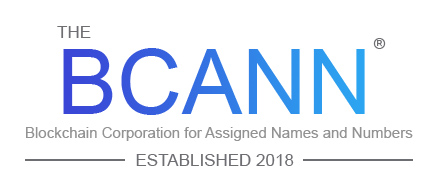
Ocean Protocol is a blockchain-based ecosystem that allows individuals and businesses to easily unlock the value of their data and monetize it through the use of ERC-20 based datatokens.
Through Ocean Protocol, publishers can monetize their data while preserving privacy and control, whereas consumers can now access datasets that were previously unavailable or difficult to find. These datasets can be discovered on the Ocean Market, where they can be purchased and later consumed or sold.
On Ocean Protocol, each data service is represented by a unique datatoken, which is used to wrap a dataset or compute-to-data service — this essentially allows third-parties to perform operations on the data without it ever leaving the secure enclave of the publisher.
OCEAN is a utility token that is used for community governance and staking on data, in addition to buying and selling data as the basic unit of exchange on the Ocean Market. The price of these datatokens is set by an OCEAN-datatoken AMM pool, which adjusts the price of the datatoken as it is bought and sold based on supply and demand.
Who Are the Founders of Ocean Protocol?
Ocean Protocol was co-founded in 2017 by an experienced group of consultants and entrepreneurs, who together have a wealth of experience in developing and growing high tech businesses.
The Ocean Protocol core team includes: Bruce Pon, an experienced international project manager and current CEO of BigchainDB; Trent McConaghy, an experienced engineer and AI expert; Cristina Pon, marketing director at both Ocean Protocol and BigchainDB; and Razvan Olteanu, who has more than 20 years of technical and management experience in senior roles.
The Ocean Protocol core team is currently composed of 15 individuals, and the platform is supported by a massive list of advisors — many of which are experts in AI, blockchain, big data and business, and have developed and managed their own successful companies.
What Makes Ocean Protocol Unique?
Ocean Protocol unlocks access to data that would previously be unavailable or challenging to access, by allowing anybody with sought-after datasets to tokenize their data and make it available on the Ocean Market.
This produces an additional income stream for data publishers while giving scientists, researchers, data analysts and anybody else access to more reliable data.
Ocean Protocol provides the tools needed for firms to build and launch their own data markets, by either directly forking the Ocean Protocol, or by using the supplied Ocean Protocol React hooks. It also provides extensive documentation to assist with this process.
Holders of OCEAN tokens can directly participate in the datatoken economy by staking their tokens on datasets on the Ocean Market. Stakers then become liquidity providers in the selected OCEAN-datatoken pool, and earn a fraction of the transaction fees generated by the pool.
Related Pages:
Read about Uniswap (UNI) — the governance token of the Uniswap decentralized exchange.
Check out district0x (DNT) — a network of decentralized marketplaces.
Get up to speed with the latest crypto lingo with the CoinMarketCap Crypto Glossary.
Get an overview of the current market insights with the CoinMarketCap blog.
How Many Ocean Protocol (OCEAN) Coins Are There in Circulation?
As of November 2020, a total of 414 million OCEAN tokens are currently in circulation. This is out of a fixed maximum of 1.41 billion tokens, which was set in the new Ocean contract deployed on August 21, 2020.
It will take a total of 50 years for the full OCEAN supply to be released, whereas a total of ~600 million tokens are expected to be in circulation by May 2022, and 1 billion tokens by January 2031.
Of the total Ocean supply, 20% is allocated to the project founders, 15% to acquirors (SAFTE purchasers), 5% to the Ocean Protocol Foundation and the remaining 60% will be distributed to keepers (those that run Ocean network nodes).
How Is the Ocean Protocol Network Secured?
OCEAN is currently an ERC-20 token operating on the Ethereum blockchain. As a result, it is backed by Ethereum’s extensive proof-of-work (POW) mining and node network, which protect it against a variety of attacks.
Ocean Protocol previously operated on a proof-of-authority (PoA) sidechain, but this was scrapped to ensure datatokens remain compatible with the broader Ethereum ecosystem.
According to a 2019 blog entry, Ocean Protocol applied military-grade security practices when designing its smart contracts — ensuring they can be securely upgraded and deployed without opening up any attack vectors.
Where Can You Buy Ocean Protocol (OCEAN)?
Ocean Protocol (OCEAN) tokens can currently be traded on more than two dozen exchanges, including several top tier platforms — like Binance, KuCoin, Bittrex and Poloniex. As of November 2020, Binance is the most liquid centralized exchange for OCEAN, whereas Uniswap is the most liquid decentralized exchange for OCEAN.
OCEAN currently cannot be purchased directly with fiat currencies on any supported exchanges. But you can buy Bitcoin with fiat instead, and then exchange this to OCEAN.


